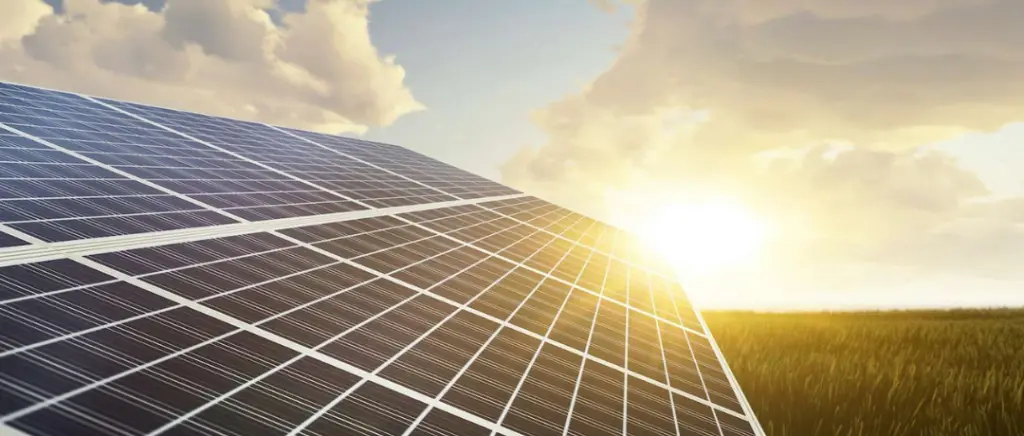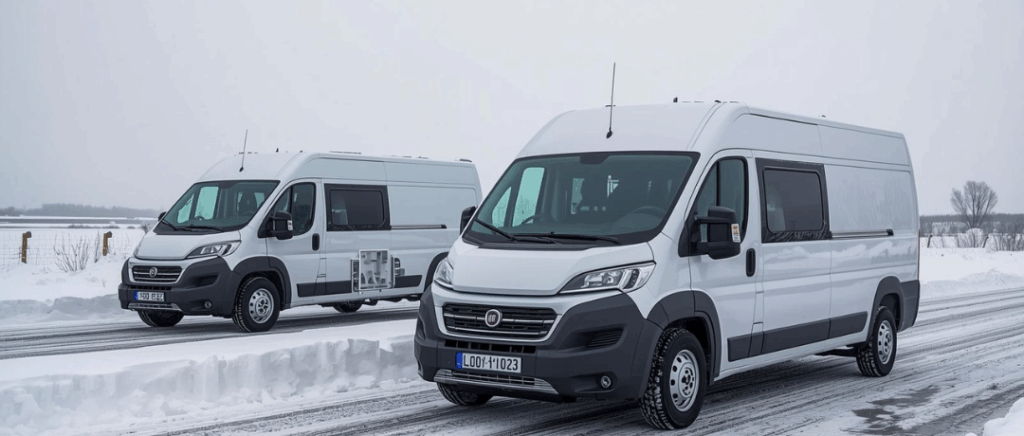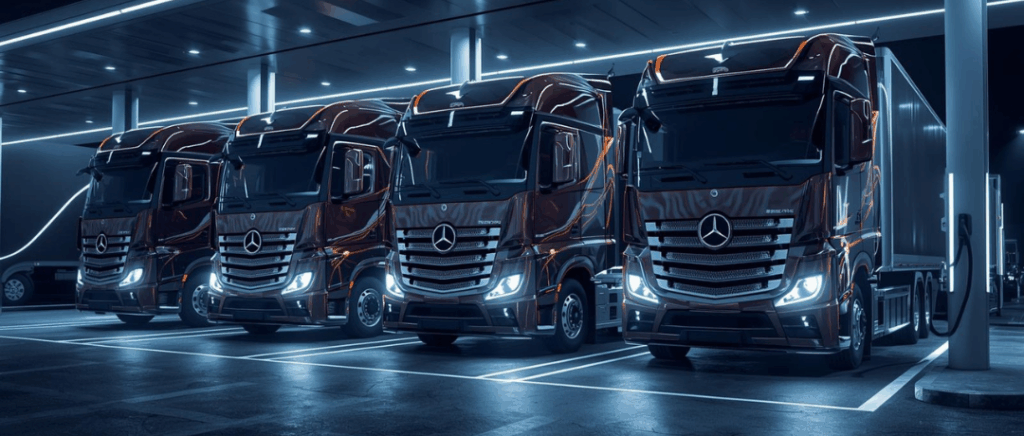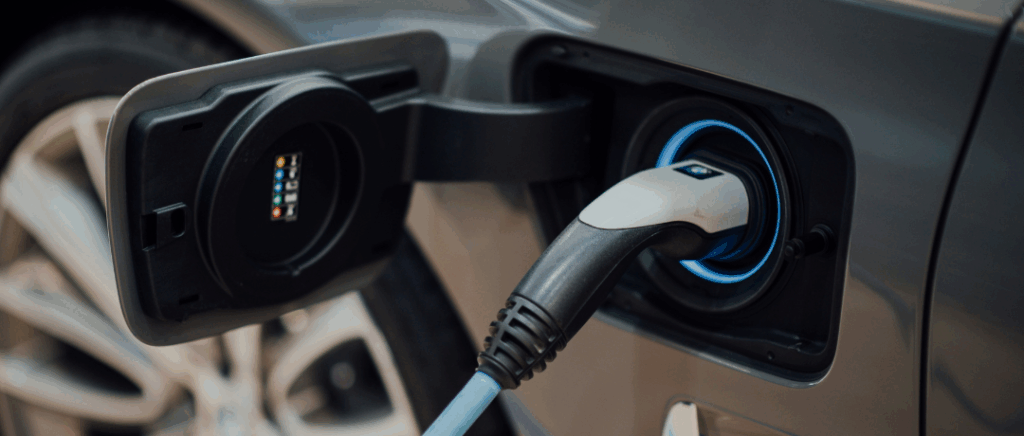Photovoltaic solutions for businesses
In an ever-changing economic and environmental context, self-consumption of solar-generated electricity is becoming an essential strategy for businesses concerned about their profitability and ecological impact. L'installation of photovoltaic panels Self-consumption offers a host of opportunities to optimise your organisation's energy management. Whether you run an SME, an industry or a farm, there are tailor-made solutions to meet your specific needs.
Installing solar panels on your roof: an effective and discreet solution
The installation of rooftop solar panels is a particularly suitable solution for businesses looking to optimise their self-consumption of energy. This approach offers a number of significant advantages for organisations concerned about their environmental impact and long-term profitability:
- Optimising space By using the often unused roof surface, companies can maximise the use of their space without compromising their activities on the ground.
- Visual discretion The integration of the panels into the roof preserves the aesthetics of the building, a crucial aspect for companies concerned about their brand image.
- Increased energy efficiency The high position of the panels ensures optimum exposure to the sun, increasing the yield of the self-consumption photovoltaic installation.
- Protection of the building In addition to generating electricity, the panels provide an extra layer of protection against the elements, extending the life of the roof.
- Intelligent management of photovoltaic self-consumption Modern systems allow fine-tuned management of production and consumption, maximising the rate of self-consumption of solar-generated electricity.
For businesses, investing in a rooftop installation means an attractive return on investment. The significant reduction in electricity bills, combined with potential tax incentives, generally means that the installation pays for itself in 5 to 10 years, providing a virtually free source of energy.
Implementing such a solution requires an in-depth study to correctly size the installation according to the company's specific needs. A detailed analysis of energy consumption, coupled with an assessment of the site's solar potential, enables the system to be optimised to maximise self-consumption and minimise reliance on the traditional electricity grid.
By adopting this approach, companies not only reduce their energy dependency but also position themselves as responsible players in the ecological transition, an undeniable advantage in a context where environmental responsibility is becoming a criterion of choice for customers and partners.
Solar car parks: generating energy while protecting vehicles
The solar car park represents an innovative and versatile solution for businesses looking to optimise their self-consumption of energy while offering a practical benefit to their employees and customers. This self-consumption photovoltaic installation transforms an often underused space into a genuine power plant, while adding significant value to your infrastructure.
Here are the main advantages of solar parking for your business:
- Maximising self-consumption of solar-generated electricity: The panels installed on the car park shading generate electricity during office hours, coinciding with your company's peak consumption.
- Vehicle protection: Shade covers provide shelter from the elements and UV rays, protecting your employees' and customers' vehicles.
- Optimisation of space: This solution enables efficient self-consumption photovoltaic management without sacrificing additional land.
- Enhanced brand image: Installing a solar car park demonstrates your company's commitment to sustainable development.
- Recharging potential for electric vehicles: The energy produced can be used to power charging stationsencouraging the transition to a vehicle fleet electricity from the company.
Setting up a solar car park requires an initial investment, but the return on investment (ROI) is generally rapid thanks to the savings made on electricity bills. What's more, some regions offer tax incentives for this type of self-consumption photovoltaic installation, making the project even more profitable.
For optimum management, we recommend integrating a monitoring system to track energy production and self-consumption in real time. This will enable you to adjust your consumption and maximise the benefits of your installation.
Photovoltaic hangars: an opportunity for industry and agriculture
The photovoltaic hangar represents an innovative, cost-effective solution for industrial and agricultural businesses, combining functionality with the production of green energy. This approach optimises the use of space while generating additional income.
Here are the main benefits for your company:
- Optimising space : Turn your roofs into solar power stations without sacrificing ground surface area.
- Reducing energy costs : Significantly reduce your electricity bill through self-consumption.
- Additional income : Sell the surplus electricity produced for an accelerated return on investment.
- A stronger brand image Demonstrate your commitment to the environment to your customers and partners.
For industry, the photovoltaic hangar can power production lines, reducing dependence on traditional electricity grids. In the agricultural sector, they provide protection for equipment and crops while generating energy for farms.
The ROI of a photovoltaic hangar is generally achieved in 7 to 10 years, with a panel lifespan of 25 to 30 years, guaranteeing long-term profitability. What's more, government subsidies and special funding can accelerate this return on investment.
By adopting this solution, your company can meet the energy challenges of B2B while at the same time adopting a sustainable development approach, which is essential in the current economic climate.
Ground-based photovoltaic power plants: maximising self-generation over large areas
For companies with large areas of undeveloped land, a ground-mounted photovoltaic power plant is the ideal solution for maximising the production of solar-generated electricity. This option, which is particularly well suited to industrial estates or large logistics sites, offers an attractive return on investment and a number of specific advantages:
- Optimum performance : Ground-mounted solar panels are ideally oriented and tilted, guaranteeing maximum energy production all year round.
- Economies of scale : The installation of a large-scale power plant significantly reduces installation and maintenance costs per kWh produced.
- Flexibility of use The space under the panels can be used for other activities, such as storage or parking, optimising the use of the land.
- Energy self-sufficiency A large-scale ground-mounted power plant can cover a significant proportion, if not all, of a company's energy needs, drastically reducing dependence on the electricity grid.
- A stronger brand image The installation of a visible photovoltaic power plant demonstrates the company's concrete commitment to sustainable development, a major asset in B2B relations.
By opting for a ground-mounted photovoltaic power plant, businesses can not only make substantial savings on their electricity bills, but also position themselves as responsible players in the energy transition - a powerful argument in today's economic landscape.
Why should your company adopt solar self-consumption?
In an ever-changing economic and environmental context, the adoption of solar self-consumption represents a major strategic opportunity for businesses. This innovative energy solution offers many benefits, going far beyond simply reducing costs. In fact, solar self-consumption enables businesses to :
- Optimise their financial performance by controlling their energy costs
- Strengthen their market position by demonstrating a concrete commitment to CSR
- Preparing proactively for future environmental regulations
- Gaining in autonomy while significantly reducing their energy consumption. carbon footprint
As energy challenges become ever more pressing for the B2B sector, solar self-consumption is emerging as a practical and cost-effective solution. It offers an attractive return on investment (ROI) in the medium term, while bringing immediate benefits in terms of image and regulatory compliance. Let's take a closer look at how this technology can transform your business and position you as a leader in your sector.
Reduce energy costs and stabilise expenditure
Solar self-consumption represents a strategic lever for companies looking to optimise their energy ROI. By installing photovoltaic panels, your company can significantly reduce its dependence on the traditional electricity grid, resulting in a substantial reduction in long-term operating costs.
Here are the main financial advantages of this approach:
- Immediate reduction in electricity bills: as soon as you switch on, your energy consumption from the grid decreases, having a direct impact on your monthly outgoings.
- Protection against volatile energy prices: by generating your own electricity, you are free from the price fluctuations imposed by energy suppliers.
- Greater budget predictability: since solar production is relatively stable and predictable, you can anticipate your energy costs more accurately over the long term.
- Attractive return on investment: with the lifespan of solar installations often exceeding 25 years, the ROI improves considerably over time, offering substantial savings.
For B2B companies faced with specific challenges such as the energy intensity of their processes or the need to maintain competitive pricing, solar self-consumption offers practical solutions. Not only does it reduce fixed costs, it also improves the company's energy resilience in the face of market uncertainties.
In short, adopting solar energy for self-consumption is part of an overall strategy to optimise resources, contributing to both the economic performance and sustainability of your business.
Promote your CSR commitment and strengthen your brand image
The adoption of solar self-consumption in business goes far beyond the simple economic benefits. It represents a powerful lever for enhancing your commitment to CSR (Corporate Social Responsibility) and consolidating your brand image, two crucial aspects in today's competitive B2B landscape.
- Concrete demonstration of environmental commitment: Installing solar panels sends a strong signal to your stakeholders, illustrating your desire to reduce your carbon footprint and actively contribute to the energy transition.
- Increased attractiveness to customers and partners: More and more contractors are including environmental criteria in their selection processes. Your solar approach can set you apart and open up new business opportunities.
- Strengthening the employer brand: Employees, particularly young talent, are sensitive to their employer's environmental commitments. This initiative can improve your attractiveness and the retention of your teams.
- Positive communication and storytelling: Solar self-consumption offers numerous opportunities for communication, enabling you to share your approach, your objectives and your results, thereby reinforcing your image as a responsible and innovative company.
- Alignment with societal expectations: By adopting solar energy, you position yourself in line with society's growing environmental concerns, improving your reputation and social acceptability.
By investing in solar self-consumption, your company is not just reducing its energy costs; it is positioning itself as a responsible and visionary player, generating a return on investment both financially and in terms of image and reputation.
Anticipating regulatory changes and ensuring compliance
At a time when environmental standards are getting tougher, here's why solar electricity is a strategic choice for your business:
- Early compliance : Many countries are introducing renewable energy quotas for businesses. By investing in solar energy now, you can position yourself ahead of these future requirements.
- Reducing the carbon footprint Large companies are increasingly required to publish their carbon footprint. Solar self-consumption allows you to significantly reduce your CO2 emissions, thereby improving your CSR report.
- Competitive advantage : In some sectors, compliance with environmental standards is becoming a selection criterion for public and private tenders. Early adoption of solar energy can give you a decisive advantage.
- Tax incentives Many governments are introducing tax incentives for companies that invest in renewable energy. Acting now can help you take advantage of these benefits before they become compulsory.
By anticipating these regulatory changes, your company does more than simply comply: it positions itself as a leader in the energy transition, reinforcing its brand image and long-term competitiveness.
Improving our energy independence and reducing our carbon footprint
Here's how this solution can transform your energy model:
- Greater independence: By generating your own electricity, you significantly reduce your dependence on traditional suppliers and fluctuations in the energy market.
- Reducing your carbon footprint: Clean, renewable solar energy drastically reduces the CO2 emissions associated with your electricity consumption, making you more socially responsible.
- Long-term cost optimisation: Although the initial investment can be substantial, the ROI is generally achieved in 5 to 10 years, offering virtually free electricity for decades to come.
- Enhanced brand image: A commitment to green energy improves your reputation with customers, partners and investors who are increasingly sensitive to environmental issues.
- Anticipated regulatory compliance: In the face of increasingly stringent environmental standards, solar self-consumption puts you ahead of future regulations.
By integrating solar self-consumption, your company is not just reducing its energy costs; it is also taking a sustainable approach, strengthening its resilience in the face of the energy and environmental challenges of the future.
What financial assistance is available to support your solar project?
Investing in solar energy represents a strategic opportunity for businesses looking to optimise their profitability and reduce their carbon footprint. To support this energy transition, a range of financial incentives are available to accelerate return on investment and maximise long-term benefits. These incentives, specifically designed for the business sector, aim to overcome the initial challenges associated with adopting green technologies, while offering substantial tax benefits.
The self-consumption premium: support to make your installation profitable
The self-consumption incentive represents a real financial lever for optimising the profitability of your solar photovoltaic installation. This subsidy, granted by the French government, is designed to encourage the production and consumption of renewable energy on site. Here are the main advantages of this subsidy for businesses:
Significant improvement in return on investment
- Reduced initial costs: The premium can cover up to 20% of the total investment, speeding up the amortisation of your installation..
- Shorter payback period: On average, this aid reduces the payback period for your solar project by 2 to 3 years.
Flexibility and accessibility
- Broad eligibility: Accessible to businesses regardless of income, for installations of up to 100 kWp.
- Adaptability: The premium adjusts to the size and specific needs of your company.
Feed-in tariff for the resale of surplus electricity
For companies investing in solar power, the resale of surplus electricity represents an opportunity to maximise return on investment (ROI). In 2025, the feed-in tariff for surplus photovoltaic power will vary according to the output of the installation:
- For installations ≤ 9 kWp: 0.1269 €/kWh
- For installations between 9 kWp and 100 kWp: €0.0761/kWh
These tariffs, set by the Commission de Régulation de l'Énergie (CRE), apply to projects for which the connection request is made between November 2024 and January 2025.
In addition to the feed-in tariff, companies can benefit from a self-consumption bonus of up to €300 per kWp, paid over 5 years. This premium, combined with the feed-in tariff, significantly improves the profitability of B2B solar projects.
Specific local grants and subsidies for businesses
For companies investing in solar power, the resale of surplus electricity represents an opportunity to maximise return on investment (ROI). In 2025, the feed-in tariff for surplus photovoltaic power will vary according to the output of the installation:
- For installations ≤ 9 kWp: 0.1269 €/kWh
- For installations between 9 kWp and 100 kWp: €0.0761/kWh
These tariffs, set by the Commission de Régulation de l'Énergie (CRE), apply to projects for which the connection request is made between November 2024 and January 2025.
In addition to the feed-in tariff, companies can benefit from a self-consumption bonus of up to €300 per kWp, paid over 5 years. This premium, combined with the feed-in tariff, significantly improves the profitability of B2B solar projects.
Tax benefits and depreciation for solar installations
Investing in solar energy offers significant tax and amortisation benefits for businesses, maximising return on investment (ROI):
- Accelerated depreciation Photovoltaic panels are generally depreciated over 20 to 25 years, allowing the investment cost to be spread out and the tax base to be reduced. Some companies can even take advantage of exceptional depreciation, speeding up the payback period.
- Tax exemption New businesses set up exclusively to produce solar-generated electricity can benefit from tax exemption for 23 months, provided they are subject to the actual taxation system.
- Reduction in IFER For installations of more than 100 kWp commissioned after 1 January 2021, the flat-rate tax on network operators (Imposition Forfaitaire des Entreprises de Réseaux - IFER) will be halved to €3.479/kW/year for 20 years.
- Tax credits and deductions Tax credits: Companies can benefit from specific tax credits and deductions, considerably reducing initial investment costs.
These tax benefits, combined with the reduction in energy costs, accelerate the return on investment, generally estimated at between 6 and 10 years.
To maximise the benefits, it is crucial to analyse the company's energy consumption accurately and optimise the sizing of the solar installation.
Summary table
| Category | Advantage | Details |
|---|---|---|
| Financial | Reducing energy costs | Significantly reduce electricity bills by reducing dependence on the traditional grid. |
| Stabilisation of expenditure | Stabilises energy costs over the long term, providing greater financial predictability and protection against fluctuations in energy prices. | |
| Attractive Return on Investment (ROI) | Solar panel systems generally pay for themselves in 5 to 10 years, after which the electricity is essentially free. | |
| Potential for additional income | The surplus electricity produced can be sold back to the grid. | |
| Environmental & Social | Improving brand image | Position the company as a responsible player in the energy transition. |
| Corporate Social Responsibility (CSR) | Demonstrates a concrete commitment to reducing its carbon footprint. | |
| Attracting and retaining talent | Attracts employees who value environmental responsibility. | |
| Operational | Energy independence | Reduces dependence on traditional energy suppliers. |
| Infrastructure Protection | Solar panels on roofs offer protection against the elements. | |
| Optimised use of space | Uses existing space without disrupting operations. | |
| Preparing for the future | Regulatory Compliance | Prepares for stricter environmental regulations. |
| Specific Solutions | Solar Roofing | Discreet, optimises space, protects the building. |
| Solar car park | Maximises solar electricity consumption, protects vehicles. | |
| Photovoltaic shed | Optimises space, reduces energy costs. | |
| Ground-mounted photovoltaic power plant | Maximises self-production over large areas. |
Conclusion
In conclusion, the adoption of solar-generated electricity for self-consumption is an advantageous strategy for businesses. As well as reducing energy costs and stabilising expenditure, it helps to reinforce the company's image as a responsible player in the energy transition. A range of photovoltaic solutions, including roof-top installations, solar car parks, photovoltaic hangars and ground-mounted power plants, can be tailored to the specific needs of each business. Anticipating regulatory changes and enhancing your CSR commitment are just some of the benefits that make solar self-consumption a wise choice for a sustainable and economically viable future.
Do you want to go electric? Beev can help you make the transition to greener, more sustainable mobility. Whether you're an individual looking for a installation of home charging points or a professional requiring installation of recharging points for professionalswe are simplifying theinstallation of a recharging pointby offering you tailor-made solutions to meet your specific needs. So go ahead, install a charging point and set yourself apart from the competition.
Why not install photovoltaic solar panels?
With Beev, get a turnkey solar panel solution to reduce your electricity consumption.
































